Let’s be honest – the idea of studying abroad is as daunting as it is inspiring. The journey from first considering studying abroad to stepping foot on a university campus on the other side of the world may seem long and full of hurdles, but good planning and a positive mindset can go a long way to making your dreams a reality. It’s scary, sure, but it’s also totally achievable. Here are 5 common study abroad myths that may be holding you back and the truth behind them.
Studying abroad is too expensive. I can’t afford it.
Study abroad can be affordable.
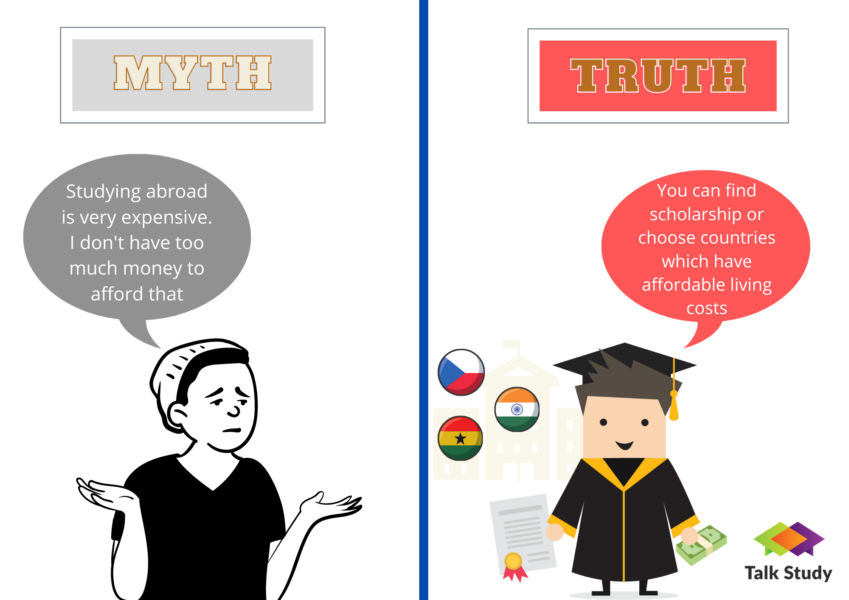
The cost of studying abroad can vary depending on the program, its location and length. For example, studying in Ghana, India or the Czech Republic is less expensive because the cost of living is lower.
In fact, study abroad can cost little more than a semester on campus. Many scholarships are available, especially for non-traditional destinations or first generation and underrepresented students or those with demonstrated financial need. Sweet Briar will work with you to identify a program that fits your goals and interests and find the resources you need to bridge the gap.
I don’t speak another language. I can’t study abroad.
You can study in an English.
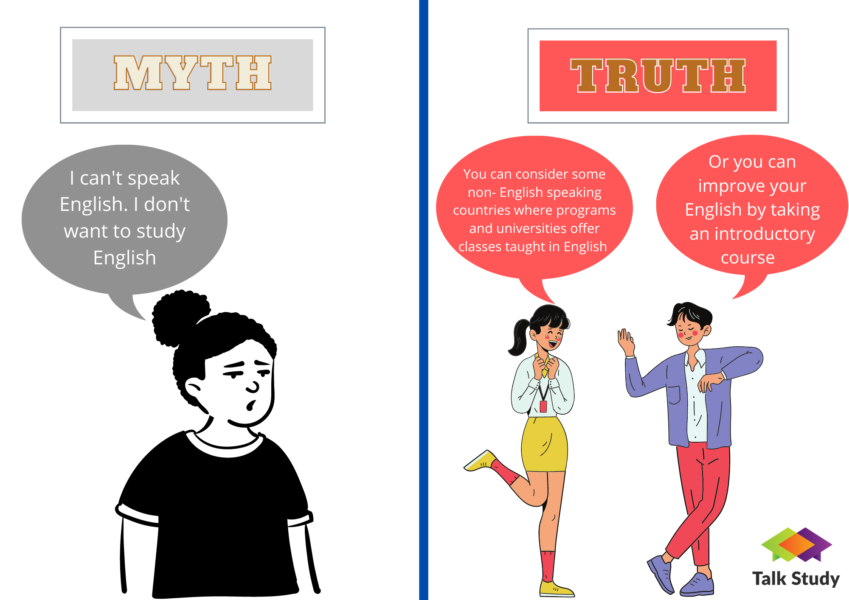
There are lots of English-speaking countries where you can study, including the United Kingdom, Australia or New Zealand. You might also consider The Netherlands, Sweden or Thailand where programs and universities offer classes taught in English even though the official language of the country is not English. We encourage you to take an introductory course in the local language during your stay!
It’s just a semester of partying or backpacking trip through Europe. Employers don’t value study abroad.
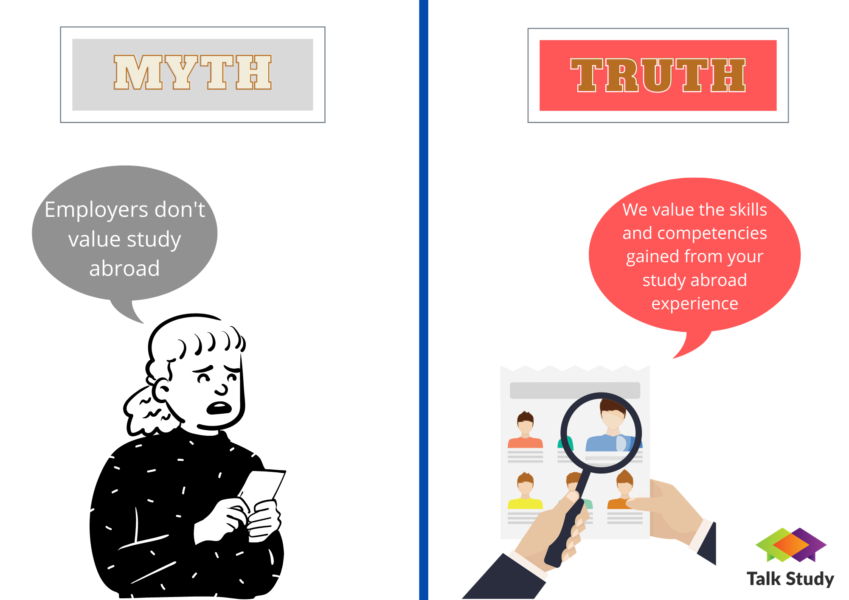
In today’s global marketplace, studying abroad enhance your resume, especially if you do an internship abroad as part of your program. Employers value the skills and competencies gained from a study abroad experience, including intercultural communication, flexibility and adaptability, creativity, problem solving, independence and resilience. Of course, foreign language ability is a plus in just about any job. Employers also value employees who have an understanding of the world and are able to work with diverse groups of people.
I won’t know anyone and I’ll be alone.
No matter where you study, there will be staff on site who guide and support you. Plus, there will be many opportunities to meet other study abroad or local students, which can help you make new friends from around the world and form life-long friendships. One tip: Choose a USAC specialty program where you’ll be with a smaller group of study abroad students from American colleges.
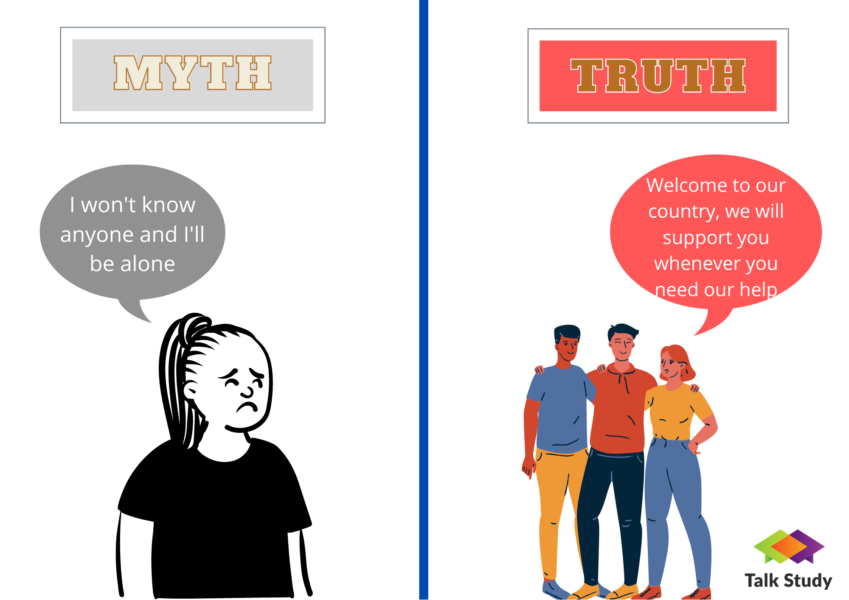
Maybe you’re interested in:
How To Find Valuable Work Experience While You Study
The Most important skill gap International Students must overcome
In today’s world, studying abroad is too dangerous.
While safety is always a concern, Sweet Briar considers safety in approving where students can study abroad. Students should always think about safety when deciding where to go and programs provide pre-departure and on-site orientations and guidance so you can be safe during your time abroad. When deciding where to study, you should consider your own comfort zone and look into relatively safe locations such as Denmark or New Zealand.
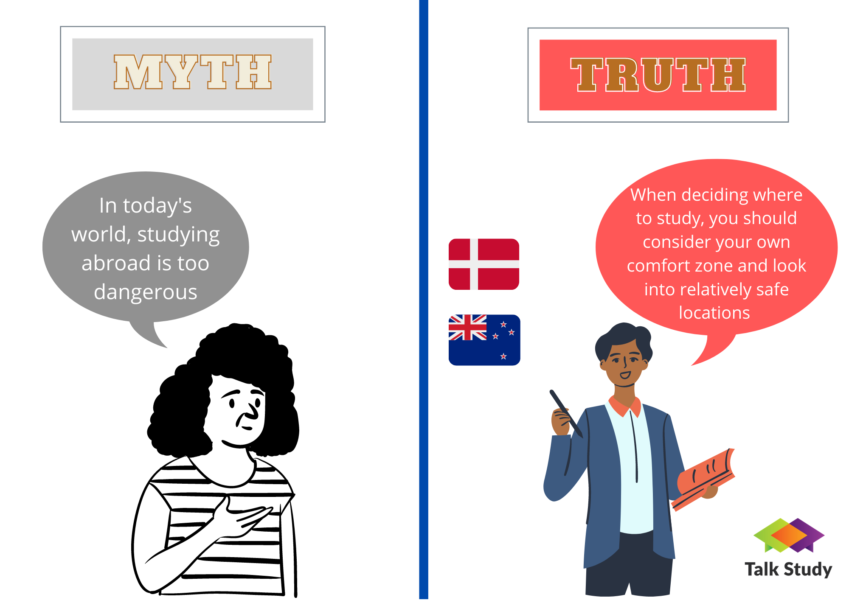
Source sbc.edu






Recent Comments